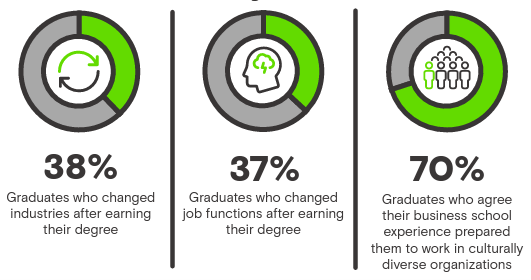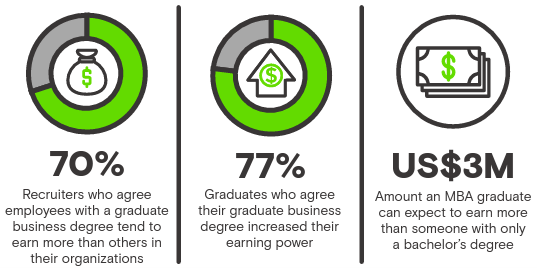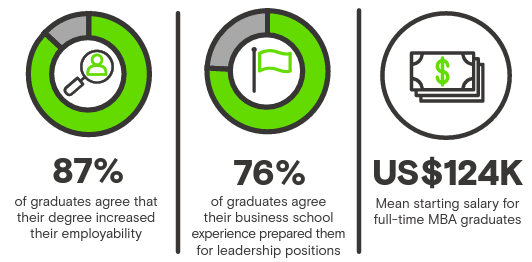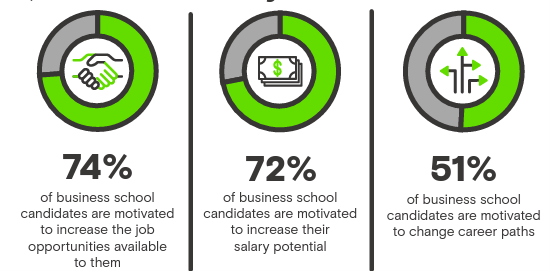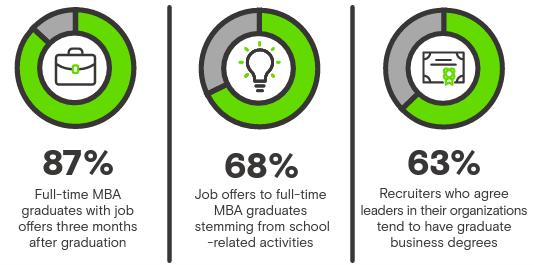The number of folks interested in an MBA program to better the attractiveness of their resumes and to expand their career potential has continued to grow over the last decade. However, program tuitions have continued to climb post COVID-19, and some schools are seemingly pricing themselves out of the market of interested candidates due to these elevated costs (Poets and Quants, 2022). In addition to rising tuition costs (especially when measured against wage inflation and cost of living inflation), there continues to be criticism around whether the MBA program actually provides career benefits to someone given the time and costs involved in completing the program.
Therefore, the decision to pursue an MBA program is a significant one, and potential students must carefully weigh the costs and benefits associated with obtaining this degree. Let’s dive right into looking at the various factors that should be considered when deciding if an MBA is right for you.
The Cost Versus Value Conundrum
The cost of an MBA program varies widely, depending on factors such as the institution, location, and program length. According to the Graduate Management Admission Council (GMAC), the average cost of tuition and fees for a two-year MBA program at a U.S. business school in 2020 was approximately $100,000 USD. Mygreatlearning.com shows the average annual full time MBA program cost (as of June 2023) of $40k-$100K USD in the US, and $30k - $60k CAD in Canada. The decision to pursue an MBA should be seen as an investment in your future, and it's crucial to evaluate whether the potential benefits justify the expense.
Ivy League vs. Other Institutions
Many students aspire to attend Ivy League schools due to their prestigious reputation. While these institutions offer unique advantages, it's important to note that the value of an MBA is not solely determined by the school's name. Research by Poets & Quants indicates that a significant number of graduates from non-Ivy League schools have achieved just as impressive career outcomes as ivy league school graduates. Therefore, the value of an MBA lies in factors beyond the institution's brand. With that said, there are specific financial institutions and companies (i.e. large investment banks like Goldman Sachs) that will only consider job applicants with MBAs from Ivy League schools.
In-Person vs. Online Program and Networking
The COVID-19 pandemic accelerated the adoption of online MBA programs. While online education offers flexibility, traditional in-person programs still hold advantages, particularly in networking opportunities. Based on the GMAC reports attached below, the vast majority of MBA graduates believed that networking was an essential element of their degree. In-person classes facilitate face-to-face interactions with fellow students and professors, fostering stronger connections. Networking is often cited as one of the most valuable aspects of an MBA program. The chance to connect with classmates, professors, and industry professionals at networking events and mixers can lead to valuable contacts and career opportunities. An article from the Guardian describes someone enrolling in the MBA program as “buying into an incredibly smart group of people.”
Course Material and Practical Knowledge
The practicality of the knowledge gained in an MBA program is a critical factor. Courses that teach relevant skills and provide insights into real-world challenges are more likely to benefit graduate, which in my own opinion, are the very types of classes that are part of an MBA program. Graduates should seek programs that focus on practical, applicable knowledge. Many professors that teach MBA classes are industry practitioners and experts themselves, so they can offer industry insight and knowledge based on their very own experiences. In addition, many professors will bring in industry contacts and expert as guest lecturers, which are fantastic individuals to learn from and probe with questions related to the class theme. These are interactions and experiences that would not otherwise be gained outside of an MBA (in person) program.
The Significance of the MBA Designation
The "MBA" designation carries weight on a resume and can open doors in various industries. It signals a commitment to advanced education and can enhance your credibility as a professional. According to GMAC, MBA graduates can expect a median base salary increase of 75% three years after completing their degree. A study by the Financial Times found that 91% of MBA alumni surveyed worldwide claimed that their degree accelerated their career progression. While the value of an MBA is widespread, certain industries place a premium on this designation. Finance, consulting, healthcare, and technology are sectors where an MBA is often considered a valuable asset, especially in people leader or managerial roles. The June 2021 Corporate Recruiters Survey from GMAC shows that 94% of employers plan to hire MBA graduates, with consulting firms among the top recruiters. Technical backgrounds such as engineering, coupled with an MBA degree, are often seen as attractive pairings amongst recruiters. These pairings suggest that a person can make business decisions while maintaining, and resorting to if needed, the technical details behind an informed business decision.
The Unquantifiable Impact
Ultimately, the value of an MBA program depends on your individual career goals and aspirations, and what you want to get out of the program in the first place. Consider whether your desired role or industry requires an MBA or if it can be achieved through other means. The decision should align with your long-term objectives. Measuring the precise impact of an MBA on your career can be challenging. It's impossible to know the alternative outcome on how your career would have progressed WITHOUT the degree. However, the knowledge, skills, and connections gained during an MBA program often contribute significantly to career advancement. The 2022 report from MBA.com showed on average that MBA graduates will earn $3MM more over the course of their career compared against someone without an MBA degree. As a way to measure this “unquantifiable impact” yourself, when in job interviews, don't be afraid to ask whether your MBA designation or school experience influenced the hiring manager's decision to interview you as a job candidate. This can provide insight into the perceived value of your degree within the organization.
Speaking of “candidates”, whatever you do, please don’t put “MBA candidate” on your LinkedIn profile. It’s as if everyone who took a GMAT exam all of sudden wants to tell the world what their future intentions are. There’s little meaning in showcasing to the world that you are in the progress of doing something when that something only has meaning when it is completed. This is arbitrary as progress can be measured in various different ways. Just because I thought about star gazing for 5 minutes doesn’t mean I’m suddenly a NASA astronaut candidate. You either have an MBA or you don’t.
The value of an MBA program is multifaceted and depends on various factors. While the cost versus value conundrum is essential to consider, it's equally important to recognize that the impact of an MBA goes beyond monetary gains. A well-rounded assessment of your aspirations and the program's offerings will help you make an informed decision on whether pursuing an MBA is the right choice for your career.
How do you know if someone has an MBA or not? Oh don’t worry, they’ll tell you.
Statistics Summary from MBA.com (2022 report)

